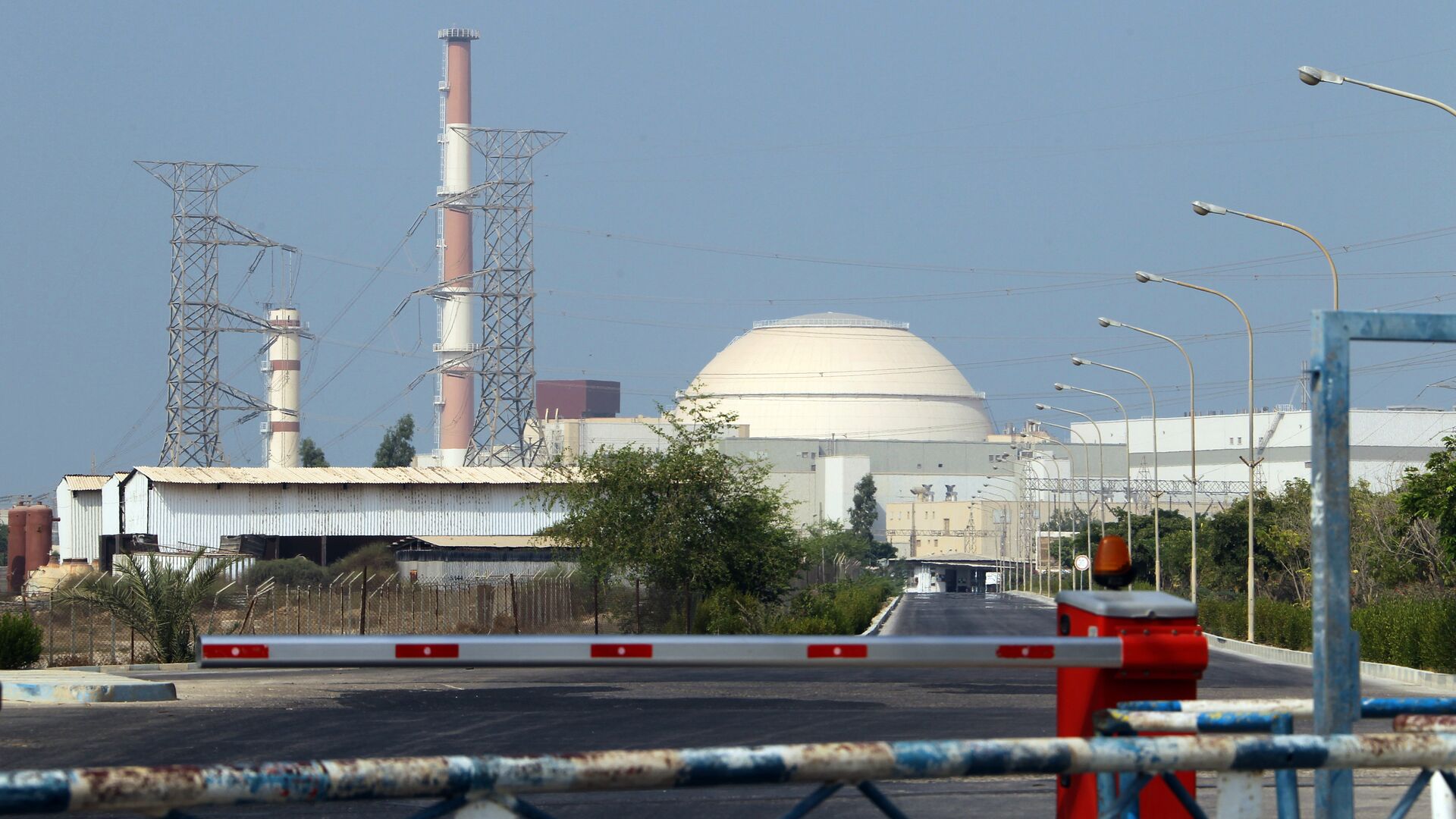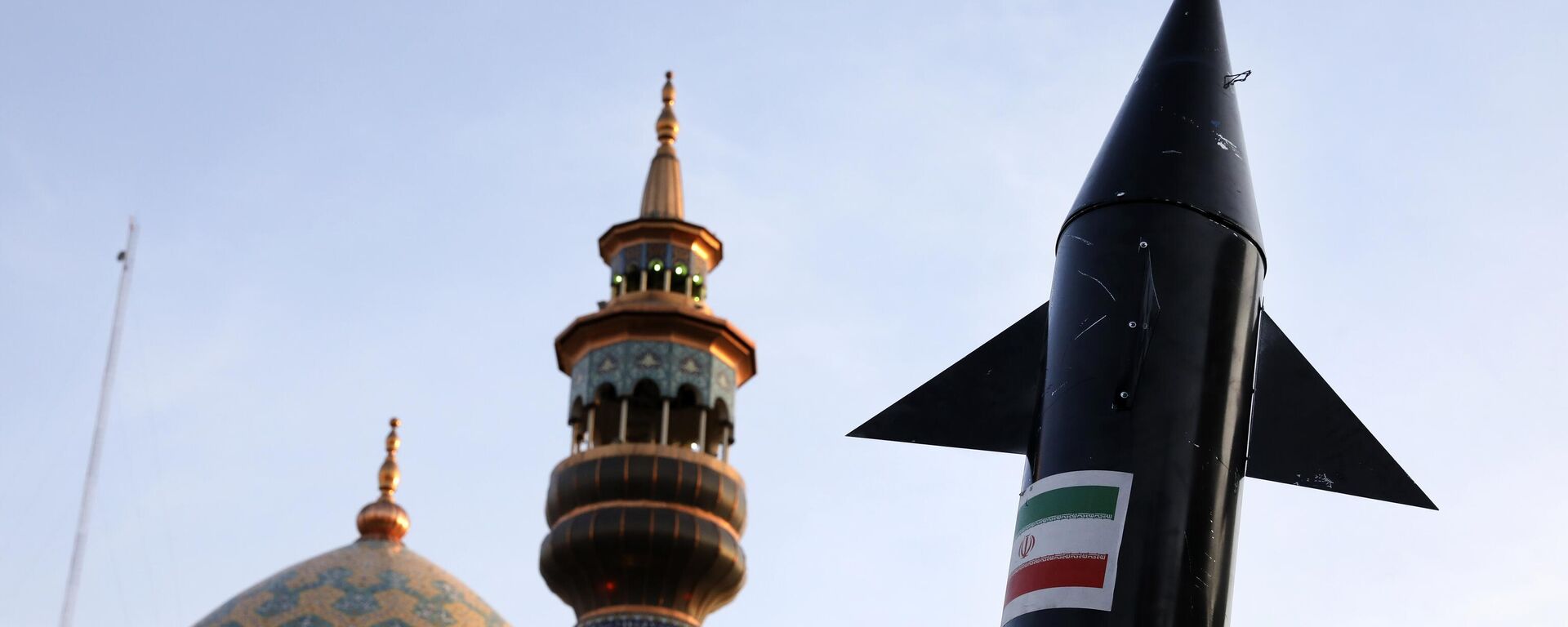https://en.sputniknews.africa/20240418/1066136629.html
Will New US Anti-Iran Sanctions Impact Tehran?
Will New US Anti-Iran Sanctions Impact Tehran?
Sputnik Africa
Additional restrictive measures against Iran will hardly change anything in Tehran's relations with Western countries because the gap between Iran and the West... 18.04.2024, Sputnik Africa
2024-04-18T09:29+0200
2024-04-18T09:29+0200
2024-04-18T18:59+0200
iran
israel
united states (us)
middle east
attack
strike
airstrikes
sanctions
us sanctions
iran’s islamic revolutionary guard corps (irgc)
https://cdn1.img.sputniknews.africa/img/102897/89/1028978907_0:129:4648:2744_1920x0_80_0_0_3f0727f588fd61228bdd4c7cb207d6f0.jpg
The US will impose new sanctions on Iran's missile and drone program in the coming days, White House national security adviser Jake Sullivan has announced.The sanctions will also target Iran's Ministry of Defense and the country's Islamic Revolutionary Guard Corps, Sullivan said, adding that the restrictive measures are being imposed in light of Iran's drone and missile attack on Israel late last week.Introducing additional sanctions against Iran makes no sense because the Islamic Republic "is so sanctioned" that more such measures will do "almost nothing," Professor Hossein Askari, political analyst and Iranian professor emeritus of international business and international affairs at the GW School of Business, told Sputnik.Asked how the new sanctions will affect Iran's relations with Western countries, the expert noted that Iran "has written off the West at least for the next decade."Tehran doesn’t trust the West "and the gap between Iran and the West cannot grow much more than where it is," the analyst said, pointing to "the bias of the US and Europe in defending Israel's crimes against the Palestinians while attacking everything that Iran does.""The Western press has forgotten the Israeli attack on Iran's consulate that killed 11, but then harps on the Iranian response that was orchestrated to warn Israel and kill no one. The West is losing its credibility by the day. The truth matters," Askari pointed out.Last Saturday, the Islamic Republic conducted its first-ever direct attack on Israel, which saw a wave of over 300 missiles and drones fired from Iran, Iraq, Syria and Yemen. Most of them were reportedly downed by Israel and its allies.Tehran said that the attack was in retaliation for an Israeli air strike on the Iranian consulate in Syria on April 1 that killed at least 13 people.The US has steadily stepped up its sanctions campaign against Iran, targeting various entities and individuals. This is part of a broader strategy to exert pressure on Iran, affecting diverse sectors including petrochemicals, technology, and even cyber-related areas.
https://en.sputniknews.africa/20240418/1066134348.html
iran
israel
united states (us)
middle east
Sputnik Africa
feedback@sputniknews.com
+74956456601
MIA „Rossiya Segodnya“
2024
News
en_EN
Sputnik Africa
feedback@sputniknews.com
+74956456601
MIA „Rossiya Segodnya“
Sputnik Africa
feedback@sputniknews.com
+74956456601
MIA „Rossiya Segodnya“
iran, israel, united states (us), middle east, attack, strike, airstrikes, sanctions, us sanctions, iran’s islamic revolutionary guard corps (irgc)
iran, israel, united states (us), middle east, attack, strike, airstrikes, sanctions, us sanctions, iran’s islamic revolutionary guard corps (irgc)
Will New US Anti-Iran Sanctions Impact Tehran?
09:29 18.04.2024 (Updated: 18:59 18.04.2024) Additional restrictive measures against Iran will hardly change anything in Tehran's relations with Western countries because the gap between Iran and the West "cannot grow much more than where it is," political analyst Hossein Askari told Sputnik.
The US will impose new sanctions on Iran's missile and
drone program in the coming days, White House national security adviser Jake Sullivan has announced.
The sanctions will also target Iran's Ministry of Defense and the country's Islamic Revolutionary Guard Corps, Sullivan said, adding that the restrictive measures are being imposed in light of Iran's drone and missile attack on Israel late last week.
Introducing additional sanctions against Iran makes no sense because the Islamic Republic "is so sanctioned" that more such measures will do "almost nothing," Professor Hossein Askari, political analyst and Iranian professor emeritus of international business and international affairs at the GW School of Business, told Sputnik.
"It is more for politicians to show that they are doing something rather than admitting that the isolation of Iran has been a disaster," Askari said, adding that the Iranian authorities have "realized that they live in a world where they have to be militarily strong and independent."
Asked how the new sanctions will affect Iran's relations with Western countries, the expert noted that Iran "has written off the West at least for the next decade."
Tehran doesn’t trust the West "and the gap between Iran and the West cannot grow much more than where it is," the analyst said, pointing to "the bias of the US and Europe in defending Israel's crimes against the Palestinians while attacking everything that Iran does."
"The Western press has forgotten the
Israeli attack on Iran's consulate that killed 11, but then harps on the Iranian response that was orchestrated to warn Israel and kill no one. The West is losing its credibility by the day. The truth matters," Askari pointed out.
On the issue of Tehran’s isolation, he touted Russia as "Iran's only powerful friend." According to the analyst, "Besides Russia and [President Bashar] Asad in Syria, Iran has only the disenfranchised Arabs in the region - in Lebanon, Iraq, Yemen. So I think that security cooperation with Russia is of paramount importance or Iran."
Last Saturday, the Islamic Republic conducted its first-ever direct attack on Israel, which saw a wave of over 300 missiles and drones fired from Iran, Iraq, Syria and Yemen. Most of them were reportedly downed by Israel and its allies.
Tehran said that the attack was in retaliation for an Israeli air strike on the Iranian consulate in Syria on April 1 that killed at least 13 people.
The US has steadily stepped up
its sanctions campaign against Iran, targeting various entities and individuals. This is part of a broader strategy to exert pressure on Iran, affecting diverse sectors including petrochemicals, technology, and even cyber-related areas.


